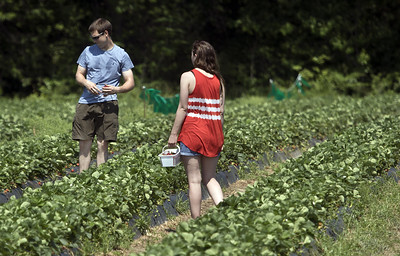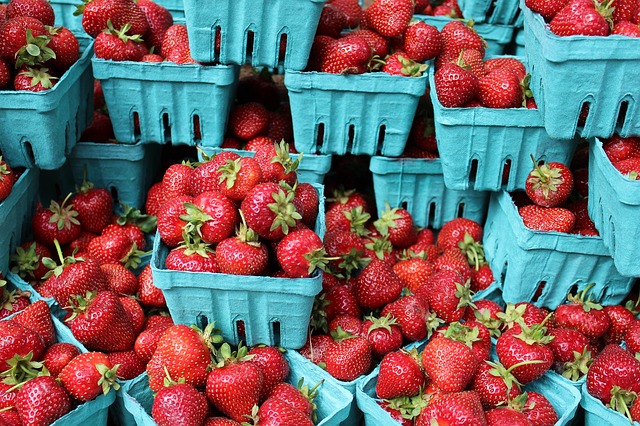3th April 2020
For the farmers, Spring means to collect all work sowed around the year. This year can be different due to coronavirus, and tons of eatable product may be wasted. According to the ONS, each year the UK rely on around 75,000 seasonal workers. 99% from abroad. While harvest stalks the UK, Spain relies on a stable workforce who work in the fields all year round.
Farmers have launched a campaign of recruitment
Usually, people from Eastern Europe come to the UK in Spring to collect fresh food. Then is when the country is almost self-sufficient… If there are enough pickers to collect fruit and vegetables. In addition to the Brexit uncertainty, this year is the borders controls and fear to be contaminated. Consequently, this year harvesting stalks the UK
However, all the farmers assure they follow the security measures to reduce the spread of the virus. The UK farming industry and the Government has launched the ‘pick for Britain’ campaign. It aims at anyone, especially those affected by the COVID-19.

National Farmers Union said: «Growers that rely on seasonal workers to grow, pick and pack our fruit and vegetables are extremely concerned about the impact coronavirus restrictions».
«It is vital that the Government takes the lead in putting in place a range of measures to coordinate and support the logistics involved in mobilising the tens of thousands of British people who will be needed to bring in our fruit and veg harvest.
“We are urging the British people, university students, anyone looking for work, to mobilise behind British growers in this time of national importance and pick for Britain.»
British Retail Consortium, the organisation who look after retailers’ interest doesn’t expect shortages of food on the shelves or rise on the prices, despite harvesting stalks the UK.
Andrew Opie, Director of Food & Sustainability at the British Retail Consortium, said: “As the UK moves into peak growing season, retailers are less reliant on imports. The availability of key workers is a focus throughout the supply chain, particularly in the production of fruit and vegetables, which relies on seasonal labour. The Government is working with major UK growers to ensure the availability of essential workers and a continued supply of fresh fruit and vegetables in the coming months.”
Suppliers don’t expect a shortage of Spanish products
Suppliers in the UK of Spanish products don’t expect shortages, although the efficiency is being affected due to the lockdown measures. Fesa, a grower and supplier of Spanish products, works with all sectors of the food industry and most retailers in the UK. They said they are confident that Spanish fruit and veg will be an important part of the British shopping basket.
Fesa’s Commercial Director said: «There have been difficulties related to the enforced social distancing measures that the Spanish government have implemented as a response to the COVID-19 pandemic. Many workers are fearful of the implications of going to work; however, our cooperatives are ensuring that official recommendations are followed at all times.»

He added: «We are managing to pick a product, pack it, transport it and receive it in the UK for onward distribution». Usually, they load almost 2,000 trucks over the year from Spain. They import a range of products such as leafy salads, melons, citrus, and exotics (persimmon, mango)».
Nevertheless, he warns the final price may increase in the supermarket. «Everybody in the supply chain is absorbing a proportion of this extra cost, including ourselves and our customers. This means that inevitably, at some point, consumers will see some increase in the cost of goods, albeit temporary».
Spain relay on a permanent workforce
Spain produces most of the vegetables that Europe eat, all year round. Therefore, they have a permanent workforce and don’t need seasonal workers, as North Europe does.
Spain exported 7.1 million tonnes to the EU, for €7,542m and the exports to the UK have increased by 3%. Andalusia, Valencia and Murcia are the regions which export the most.
Fernando Gomez, CEO at Proexport, a Murcian farmers association, said that they are working according to their projections: » We have planned our productions for the consume that we had forecast without coronavirus».
Regarding the workforce: «There are some extra hirings but not massive. Because they are already here, and we have tried to provide stability to the workers. However, it can be a lack of workforce, even though not as big as other countries».
Nevertheless, Fernando says the production might be affected due to the security measures during the collections. Therefore, the farmers are seeing the costs and the risks increasing.
If this will mean a rise in the final price is in the retailers’ court: «As we are getting extraordinary measures, the supermarket also should do it. Maybe they can compensate their margin of benefit with the increase of customers» due to the restaurants’ lockdown.
UGT-FICA is a workers union in Andalusia, where farming is a key industry. Its General Secretary, Manuel Jimenez, says that farms in Andalusia are working almost as usual. There are some consequences because of the lockdown, though.
There are problems collecting fruit. Now, in Andalusia, they collect berries, and they feel something is going wrong: «Usually come almost 20,000 Moroccans and this year has come roughly 10,000. Therefore, there is a labour shortage.”
He summaries: «The basic basket won’t be affected. Now, if before there were five different types of apple for example, now you will find just one».
France and Europe also need immigration for harvesting
France needs 200,000 workers in the next three months to bring in crops such as strawberries in the Loire Valley and asparagus in Alsace, according to the FNSEA, the national union of farmers. They need around 800,000 pickers for the whole harvesting season; normally about two-thirds come from abroad, including central and eastern Europe, Tunisia and Morocco.
Germany usually relies on roughly 300,000 seasonal workers a year. They are from eastern Europe, a majority from Romania and others from Poland, Ukraine, Bulgaria and Hungary, according to a German farmers’ association.
Fernando and Manuel warned that British retailers shall end their aggressive way of negotiation. «We call for long term deals. In that way, the farmers can organise with their customer in advance». They think this would be the wisest choice in Corona time.
Where you can apply for seasonal work as picker
- https://www.britishsummerfruits.co.uk/jobs
- https://www.lovefreshberries.co.uk/jobs
- https://hopslaboursolutions.com/seasonal-work/
- https://www.gs-fresh.com/
